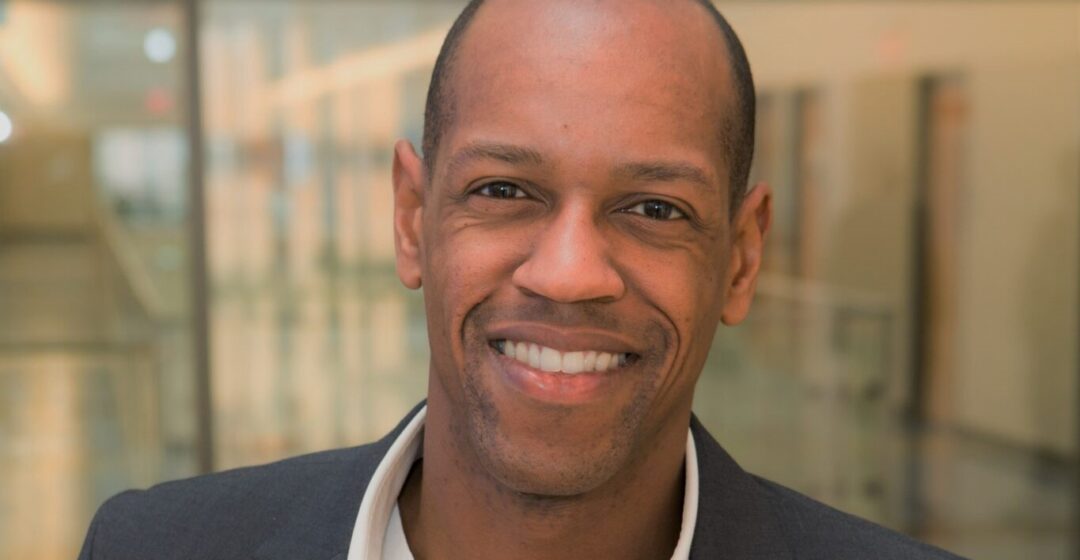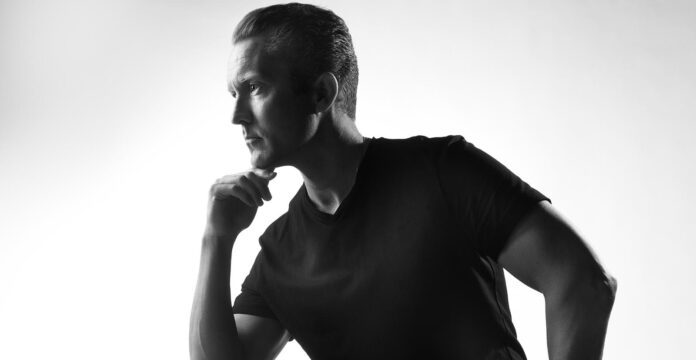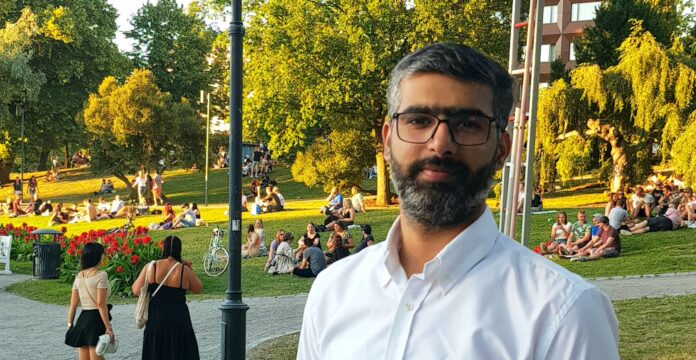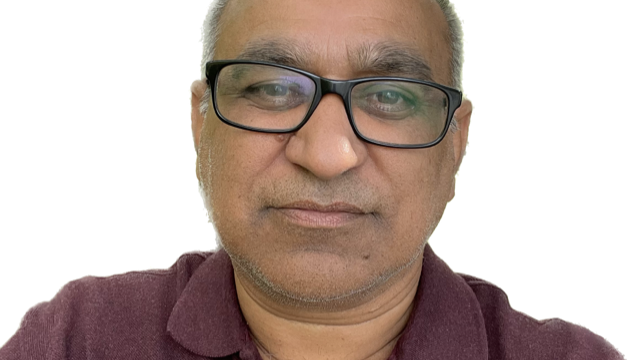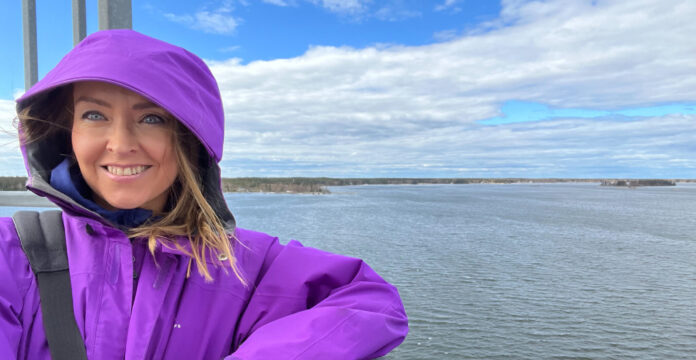This series introduces the members of University of Vaasa’s InnoLab research platform. Today we’re meeting Thomas Woodson.
In the most formal of terms: Who are you?
I’m doctor Thomas Woodson, I’m an Associate Professor in the Department of Technology and Society at the Stony Brook University. In terms of my research, I do a lot with innovation policy, especially in low-income countries. I’ve done a lot of work with new technologies, like nanotechnology or 3D printing. Recently I’ve been doing more and more work on the broader impact of science and also how big data and big data analytics impact marginalized communities.
Pleased to meet you. So how did you end up with your specialization?
My first degree was from Princeton University where I studied electrical engineering. I specialized in microfabrication and flexible electronic devices. In my last year of college, I had a chance to go to Nigeria to visit the site of a new material science laboratory. And every day, at 2 pm, the electricity was cut. No matter how talented of a scientist you are… If you have no power from 2 to 4 pm, your productivity will suffer!
That got me thinking more about the social side of science, and how society and politics affect science. Providing clean energy is not a technical problem, we’ve solved that – but there’s a societal problem why the power’s cut every day from 2 to 4 pm. I wanted to study that problem.
Would you say your work is something of a calling, then?
I really care about how technology can help people around the world, but also about how people around the world can help each other. If we look at global challenges like climate change, war, crime, water issues… These challenges cannot be solved by scientists in rich countries. You can’t only have scientists in the USA or Finland working in labs – you need people from around the world solving these global problems. That’s kind of my passion as a scholar: How can we make sure everyone is involved?
Sounds great, but how do you accomplish that in practice?
First, just teaching as a professor. It’s a big part of what we do, making sure our students can help solve global problems. If I’m very productive, I can teach 1000 students who will go out into the world and change it – not just one person.
Another part is my research, of course. Most of my research is a mixture of qualitative and quantitative; I love data sets and analyzing problems that way, but it only gets you part of the answer. If you really want to understand how people use a technology, or don’t, you need qualitative data. Talking to people is a big part of gathering information about technology.
The third portion is translating this research into policy. I really want to make sure that if I do write a paper, I talk to policy makers too: “This is what’s happening in the world, this is what we can do as policy makers to change what’s happening.”
So why Vaasa, why InnoLab? Both the US and Finland could be defined as ‘rich countries’.
So you’re correct: we’re two scholars from very rich countries, the United States and Finland. I think there’s a couple of ways to look at it. Obviously, there’s a lot of work we can do within our countries to solve inequality.
Also, the USA and Finland do a lot of outreach towards other countries, so I can get involved in how we approach and relate to those countries. It’s very easy for scientists and engineers to go to, say, Burkina Faso, and just go in and dump a new well or a filtration system and leave. That’s the wrong approach. How can we as scholars walk alongside people and develop technologies, as opposed to us imposing a technology onto somebody else?
InnoLab sounds like the right place for you! But you didn’t come alone, right?
Yes, my wife and my four-year-old son came with me. They’re both enjoying it a lot here. It’s obviously a transition moving from the USA to a new country, but we’re so impressed and thankful for the people here in Finland. Everyone’s so helpful and nice helping us to get adjusted.
My son goes to an English playschool and he’s making friends there. My wife is also enjoying it here, she has a part-time job teaching French in the USA, so she’s busy, but I think this is a great time for us as a family to grow closer and spend lots of time together. I’m here in Vaasa on a sabbatical and I hope my schedule is a little less busy, so I can spend more time with my family in the evenings, I can go to the park, and we can go on vacations and travel around other parts of Europe.
So Associate Professor Woodson is a family man. What else – can you give me an elevator pitch of yourself as person?
Yes! So, a big part of my life is that I’m a Christian. We found a nice, small local church here, it has about fifteen people. It’s an English-speaking church, which is nice, and it’s a wonderful community of people.
Another part of my life is I like to exercise. My goal at one point was to complete an Iron Man Triathlon, that goal has been pushed back as my son’s gotten older… But I still exercise regularly throughout the week: I bike, I run, and I go to the gym. I think that will be especially helpful in the cold months, when it’s really dark.
As I mentioned, we also like to travel. Our goal is to travel to different countries while we’re here, maybe do a tour of Eastern Europe – I haven’t spent much time there.
Another hobby: I like to read books. That’s probably a dorky, academic hobby but I do like reading books and I’d like to read more books by Finnish authors. It gives me a chance to learn more about this culture and community: What are the issues facing the Finns? How do they think about the world?
And raising our son takes lots of time. He’s a very busy kid, so keeping him active and enjoying his company is something I really want to do a lot more.
Going back to the academic stuff: What’s happening in your field of study – what should we be on the lookout for?
When I first started my research career, nanotechnology was the hot area of research. Then synthetic biology came about, but now it’s about big data systems. Is this technology really different from other technologies, or will we see the same patterns that have played out with previous technologies? I think mobile technologies and ICTs are different. If you go to a low-income country, everyone has a smartphone. It is more dispersed, so it will be cool to see how this technology plays out.
Beyond the world of research and policymaking, do you have any parting words of wisdom?
Um… If I was giving these words to students I’d say: Pursue your passion. No matter what your skill sets are, there are interesting questions out there, so find something that you’re passionate about. It can be hard to do, but fortunately you will probably have two or three careers over your lifetime, if not more. So be willing to take a leap now and say “I want to try this field” and be passionate about that.
From the perspective of Thomas’ coworkers: What makes you appreciate Thomas as a colleague?
“Thomas is an exemplary colleague and scholar. He is patient and helpful, always available to brainstorm or collaborate, and is a trusted and well-respected mentor to students.”
“In addition to being a top-notch researcher, he’s very pleasant to be around: Thomas is always friendly, helpful and approachable. Working with him is a privilege!”
“Thomas is an effective leader, an amazing colleague, and a thoughtful friend. His leading research into technology innovation and evaluation of broad impacts, and his dedication to improving STEM education are inspiring. He is always there to help. I feel very lucky to have the opportunity to work with him and have him around.”
